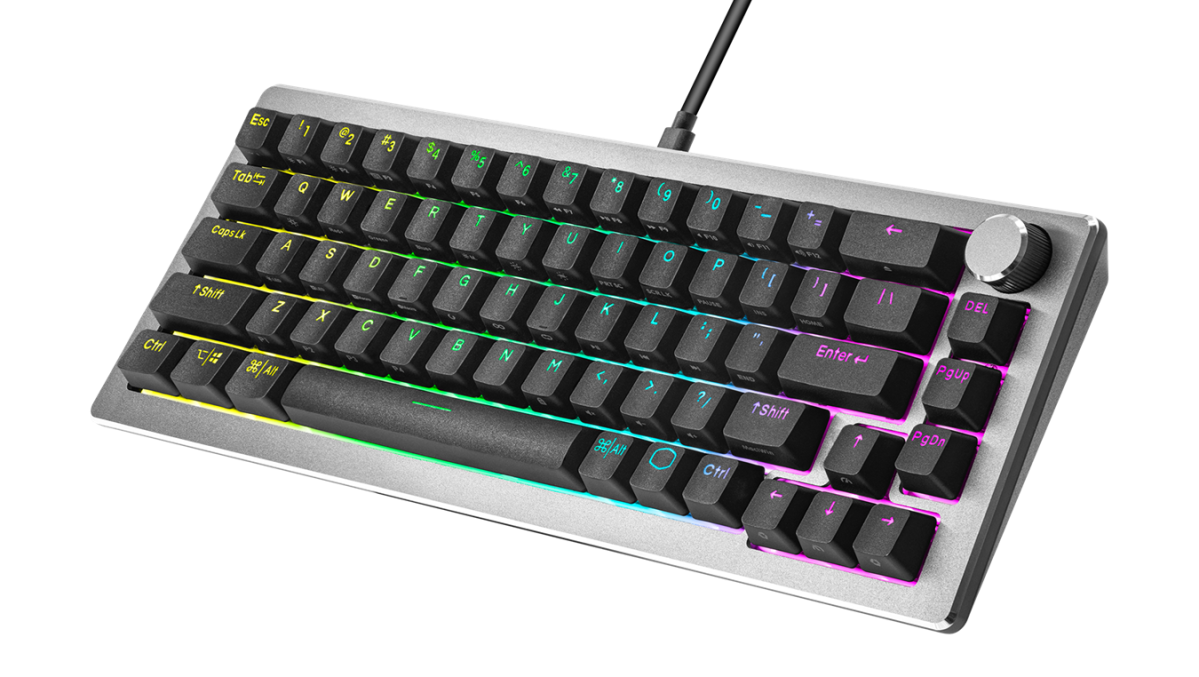Cooler Master's CK720 board is perfect for modders

 Image: Cooler Master
Image: Cooler MasterThere are a ton of things you can do to a mechanical keyboard to change how it feels and sounds, but making a bunch of changes to an expensive board can be an intimidating proposition for newbies. Enter the Cooler Master CK720. A wired-only version of the previous CK721 design, this 65% board is designed to be torn apart and reassembled with minimum tools and knowledge required. And best of all, it’s shockingly affordable at just $100.
That C-note has you a laundry list of features often restricted to much more expensive designs. You get:
A hot-swap PCB for customizing switches without soldering Full arrow cluster for easy adaptation to a compact layouttwo layers of silicone padding for a quasi-gasket mountA programmable rotary dial Full RGB lightingKailh BOX switches and PBT keycaps installed by default An easy-to-open case — just pull the integrated lever to remove the aluminum top

Cooler Master
Cooler Master
Cooler Master
That’s a great foundation for some custom work. The only downside is that the CK720 uses a non-standard layout, so hunting down custom keycaps could be a bit of a chore and programming only works with Cooler Master’s MasterPlus+ driver tool instead of the far more open QMK or VIA community tools like Keychron’s premium designs. Still, it’s a fantastic value at a hundred bucks — I don’t know of any other keyboard maker offering high-quality Kailh switches and PBT keycaps at that price regardless of the other features.
The CK720 is available to order in black and silver colors, with red, white, or brown BOX switches. The best part is that it’s shipping right now.
Author: Michael Crider, Staff Writer

Michael is a former graphic designer who’s been building and tweaking desktop computers for longer than he cares to admit. His interests include folk music, football, science fiction, and salsa verde, in no particular order.
Recent stories by Michael Crider:
Best mechanical keyboards 2024: Top picks for every needBest wireless gaming keyboards 2024: Top picks for untethered performanceNuphy Air V2 review: Low-profile keyboards get elevated







